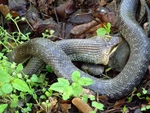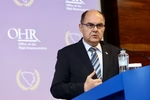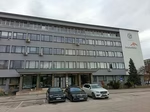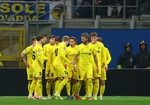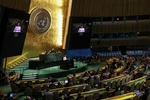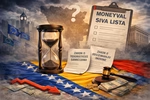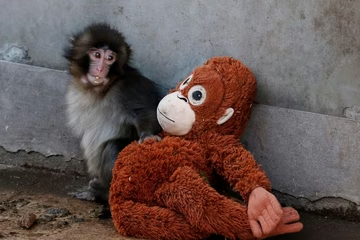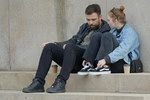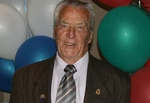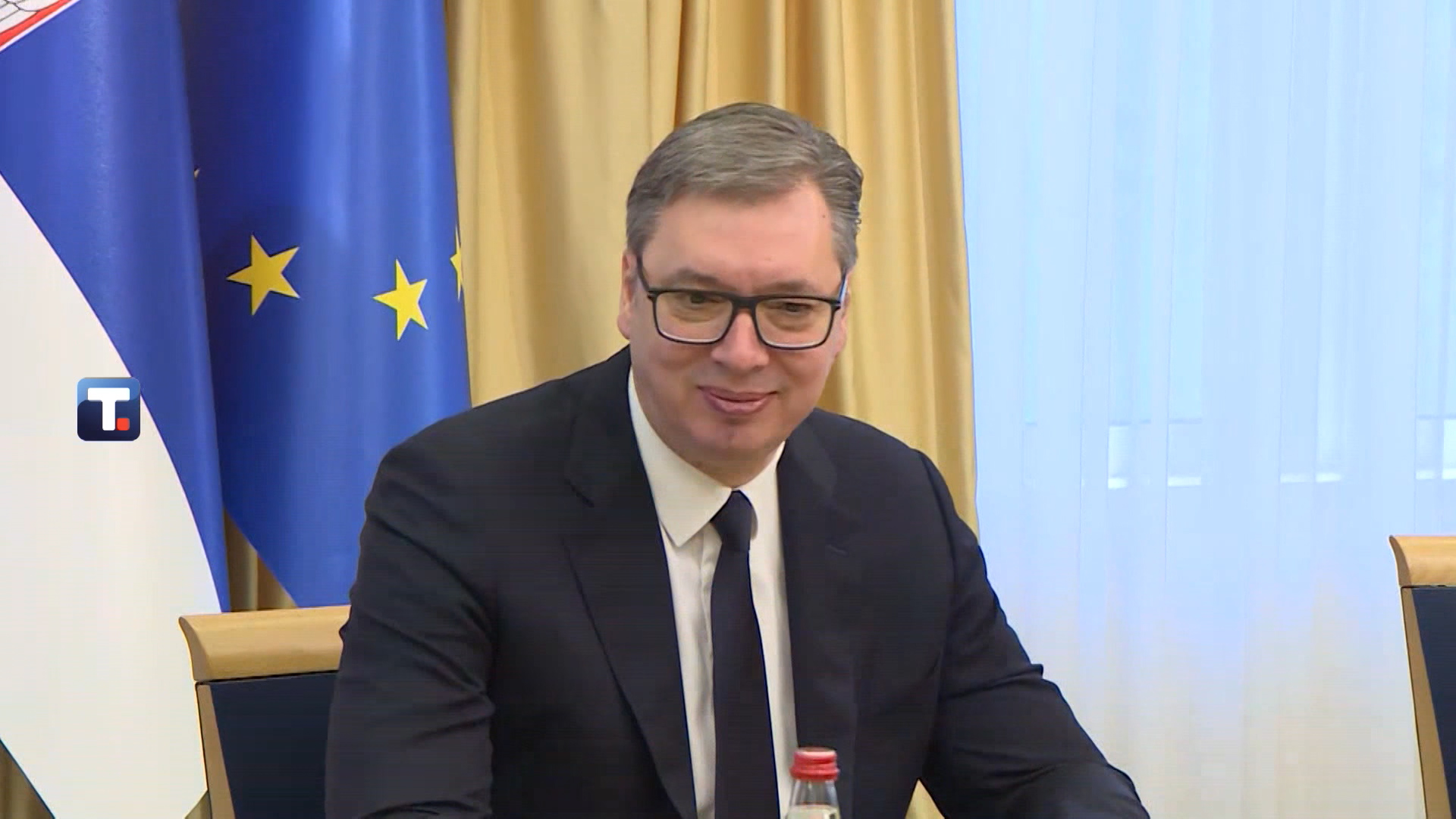
Serbian President Aleksandar Vucic, who has been the target of protests in Belgrade, has been playing up his role defending Serbs in Kosovo, where tensions have recently flared, said The New York Times.
Protesters in Belgrade called on Saturday for the resignation of top officials after two mass shootings that killed 18 people in May, reads this daily’s latest analysis.
“He is courted by American and European diplomats, applauded by a media machine dedicated to vilifying his critics and still has four years left in a presidential term secured last year with a landslide re-election victory,” reads the analysis.
It adds, however, that President Aleksandar Vucic, Serbia’s strongman leader for more than a decade, never looked so “lost as when he appeared this week in an official video on the vast rooftop terrace of his presidential offices to share a bowl of cherries with two lieutenants — and gripe about street protesters calling them rude names, including “abnormal lunatics, murderers and criminals.”
The article noted that over-the-top insults, a regular feature of “Rottweiler tabloids loyal to Mr. Vucic” and pro-government television stations, used to be directed mostly at the president’s enemies, at least in public.
“But, after weeks of street protests set off last month by two mass shootings, Mr. Vucic is now on the receiving end — and on the defensive like never before since establishing himself in 2012 as the pivot around which Serbian politics turns,” it added.
The NY Times said that the protests, with calls for the dismissal of senior law enforcement officials and the withdrawal of broadcasting licenses from two pro-government television stations, have grown into a wider revolt against a “climate of violence” blamed on Mr. Vucic and his media attack dogs.
“I’m not betting on his downfall because leaders like Vucic have very powerful techniques for survival,” said Vuk Vuksanovic of the Belgrade Centre for Security Policy, an independent research institute. “But there is an open wound and sharks are circling in the water.”
Fishing eagerly in these troubled waters has been Russia, whose ambassador to Serbia, Alexander Botsan-Kharchenko, this week blamed the West for stirring up the protest movement, which has coincided with a flare-up of tensions in Kosovo — the former Serbian territory that declared independence in 2008, reads the article.
“As tens of thousands of people took to the streets of Belgrade late last month, Mr. Vucic ordered his military to move toward northern Kosovo, which is inhabited largely by ethnic Serbs. That move followed a decision by Kosovo’s prime minister, Albin Kurti, to seize municipal buildings in the area and install new ethnic Albanian mayors who won after all but a dozen ethnic Serb voters boycotted the vote,” reported the American daily.
That infuriated Kosovo Serbs, who attacked NATO peacekeepers, injuring dozens of them and prompting the alliance to rush hundreds of extra troops to northern Kosovo, it added.
The New York Times noted that, citing the Kosovo troubles, Mr. Botsan-Kharchenko, Moscow’s ambassador, told RT Balkan, a Russian state media operation, that “the goal of the West is to change the politics of Serbia” — a message that played to nationalist Serbs who see Russia as their defender and loathe the United States because of NATO’s 1999 bombing campaign during a war over Kosovo.
It also cited a recent survey by Demostat, a research group, which found that only 3 percent of Serbs said they admired the United States and wanted good relations with it, in contrast to 22 percent who felt that way about Russia. At the same time, 32 percent favored the European Union and Scandinavian countries, indicating that support for Russia, though strong, lags behind that for the West overall.
“And what the Russian ambassador presented as a Western plot to stir up trouble in Kosovo and unseat Mr Vucic is seen as exactly the opposite by most experts and also by protesters,” added the author.
Kosovo, said Cedomir Cupic, a political science professor at the University of Belgrade, “is already lost” because there is no realistic possibility of Serbia taking back and ruling more than a million restive ethnic Albanians. But for Russia, he said, the domestic passions it still generates are a godsend for Moscow — a “toothpick that it can always poke around to make the U.S. and Europe feel nervous.”
Kakvo je tvoje mišljenje o ovome?
Učestvuj u diskusiji ili pročitaj komentare





 Srbija
Srbija
 Hrvatska
Hrvatska
 Slovenija
Slovenija








